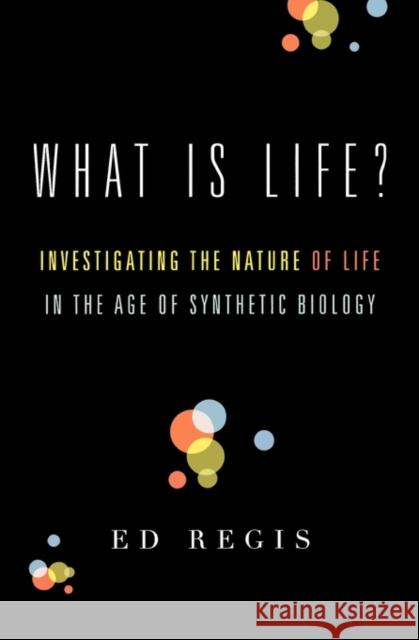What Is Life?: Investigating the Nature of Life in the Age of Synthetic Biology » książka
What Is Life?: Investigating the Nature of Life in the Age of Synthetic Biology
ISBN-13: 9780195383416 / Angielski / Miękka / 2009 / 208 str.
What Is Life?: Investigating the Nature of Life in the Age of Synthetic Biology
ISBN-13: 9780195383416 / Angielski / Miękka / 2009 / 208 str.
(netto: 54,41 VAT: 5%)
Najniższa cena z 30 dni: 57,29
ok. 16-18 dni roboczych
Bez gwarancji dostawy przed świętami
Darmowa dostawa!
Erwin Schrodinger's 1944 classic What Is Life? is a small book that occupies a large place among the great written works of the twentieth century. It is said that it helped launch the modern revolution in biology and genetics, and inspired a generation of scientists, including Watson and Crick, to explore the riddle of life itself.
Now, more than sixty years later, science writer Ed Regis offers an intriguing look at where this quest stands today. Regis ranges widely here, illuminating many diverse efforts to solve one of science's great mysteries. He examines the genesis of Schrodinger's great book--which first debuted as three public lectures in Dublin--and details the fantastic reception his ideas received, both in Europe and America. Regis also introduces us to the work of a remarkable group of scientists who are attempting literally to create life from scratch, starting with molecular components that they hope to assemble into the world's first synthetic living cell. The book also examines how scientists have unlocked the "three secrets of life," describes the key role played by ATP ("the ultimate driving force of all life"), and outlines the many attempts to explain how life first arose on earth, a puzzle that has given birth to a wide range of theories (which Francis Crick dismissed as "too much speculation running after too few facts"), from the primordial sandwich theory, to the theory that life arose in clay, in deep-sea vents, or in oily bubbles at the seashore, right up to Freeman Dyson's "theory of double origins."
Written in a lively and accessible style, and bringing together a wide range of cutting-edge research, What is Life? makes an illuminating contribution to this ancient and ever-fascinating debate.
"











